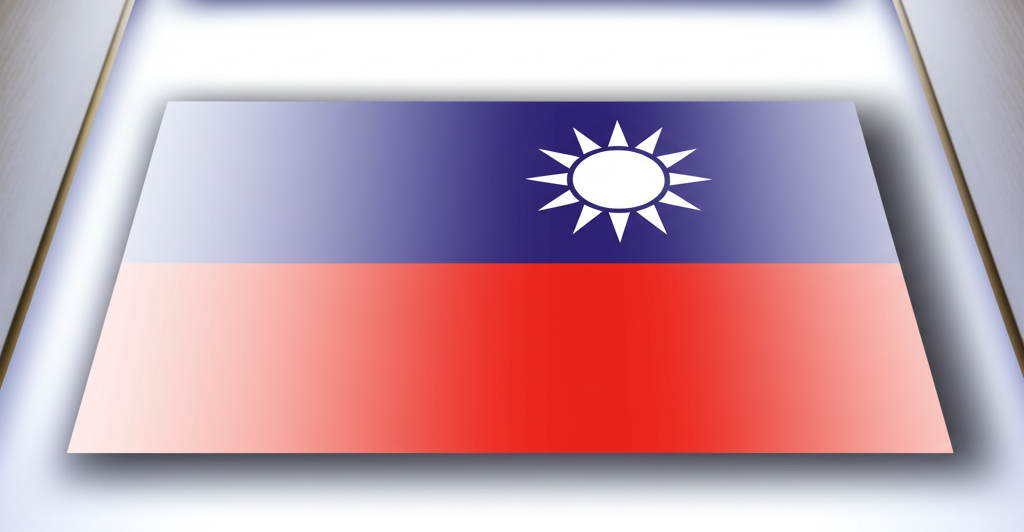Taiwan Rejects Trump's "Deeply Unreasonable" 32% Tariff: A Trade Tango
Taipei Responds to U.S. Tariffs, Vowing to Protect Taiwanese Interests

Taipei, April 3 – The Taiwanese government has strongly condemned the U.S. decision to impose a 32 percent tariff on Taiwanese goods, calling the move "deeply unreasonable" and expressing its intent to challenge the tariffs with Washington.
Announced by U.S. President Donald Trump, the tariffs are scheduled to take effect on April 9. The Taiwanese Cabinet, in a press release, described the tariffs as "highly regrettable."
Cabinet spokesperson Michelle Lee (李慧芝) stated that the government will "lodge a solemn representation" with the United States Trade Representative and engage in further negotiations with the U.S. to "ensure the interests of our nation and industries."
President Trump, during a press conference in Washington, unveiled a 10 percent baseline tariff on the majority of goods imported into the U.S., set to begin on April 5. However, Taiwan and numerous other nations, including key U.S. trading partners, will face significantly higher tariffs. This action, according to Trump, is aimed at addressing "unbalanced" trading relationships, reducing trade deficits, and bolstering American manufacturing capabilities.
Specifically, the Trump administration will implement a 32 percent "reciprocal tariff" on Taiwanese goods entering the U.S., commencing April 9.
These "reciprocal tariffs" are directed at countries that have imposed tariffs, manipulated currencies, subsidized exports, and applied other trade barriers against the U.S., as stated by Trump.
Certain goods, including copper, pharmaceuticals, semiconductors, lumber, energy, and specific critical minerals, will be exempt from these levies, according to the White House.
In the press release, Lee argued that the planned 32 percent tariff is "unfair to Taiwan" because it "does not accurately reflect the trade and economic situation" between the two countries.
Lee highlighted that Taiwan's exports to the U.S. have seen considerable growth in recent years, largely due to the increased U.S. demand for semiconductors and artificial intelligence-related products.
Furthermore, Lee pointed out that many Taiwanese information and communication companies have shifted their manufacturing operations from China to Taiwan because of American tariffs on Chinese goods during Trump's first term and U.S. technology control policies against China over national security concerns.
Consequently, Lee stated that Taiwan should not be subjected to high tariffs, given its "tremendous contributions to the U.S. economy and national security."
According to Lee, the Taiwanese government has actively been addressing transshipment by Taiwanese producers. This practice involves routing goods through a third country to alter their origin to benefit from lower duties.
The spokesperson argued that Taiwan should not be treated similarly to Vietnam, which faces a 46 percent tariff, Cambodia (49 percent), and Thailand (36 percent), where transshipment issues are more prevalent.
Lee also criticized the "unclear" methodology, scientific basis, and international trade theory underlying the U.S.'s tariff measures.
Data from Taiwan's executive body revealed that the U.S. had a trade deficit with Taiwan of approximately US$73.9 billion in 2024, representing a year-on-year increase of 54.6 percent. This positions Taiwan as the sixth-largest source of trade deficits for the U.S.
The data also indicated that total bilateral trade in 2024 reached US$158.6 billion, a 24.2 percent increase compared to the previous year.
Other Versions
Taiwán rechaza el arancel del 32% impuesto por Trump: Un tango comercial
Taïwan rejette les droits de douane de 32 % de Trump "Deeply Unreasonable" : Un tango commercial
Taiwan Menolak Tarif 32% Trump yang "Sangat Tidak Masuk Akal": Tango Perdagangan
Taiwan respinge la tariffa del 32% di Trump, profondamente irragionevole: Un tango commerciale
台湾、トランプ大統領の32%関税を拒否:貿易タンゴ
대만, 트럼프의 '매우 불합리한' 32% 관세 부과를 거부하다: 무역 탱고
Tinanggihan ng Taiwan ang "Labis na Hindi Makatuwiran" na 32% Taripa ni Trump: Isang Trade Tango
Тайвань отвергает "глубоко необоснованный" 32-процентный тариф Трампа: Торговое танго
ไต้หวันปฏิเสธภาษี 32% ของทรัมป์ที่ "ไม่สมเหตุสมผลอย่างยิ่ง": การเจรจาต่อรองทางการค้า
Đài Loan Bác Bỏ Mức Thuế 32% "Vô Lý Sâu Sắc" của Trump: Một Điệu Tango Thương Mại
